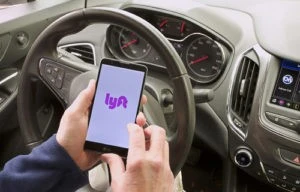
Uber and Lyft drivers have insurance, including large liability policies provided by the rideshare companies that are in effect any time a rider is in their vehicle. If you were injured in a rideshare accident as a passenger, it will likely be possible to file a claim based on this policy. When a rideshare accident occurs in another way, it is more complicated to determine which insurance policy applies and where you will need to file your claim. Both Uber and Lyft provide information online and on the app about reporting accidents and how insurance coverage works, but many victims still find it frustrating and stressful. To simplify the process, enlist the help of a car accident attorney from our firm. We regularly handle these claims and our team is familiar with how the process works. This will allow you to focus on other things while we take care of your claims.
- Uber and Lyft Drivers Must Have Personal Auto Insurance
- Rideshare Companies Also Provide Contingency Coverage
- Additional Coverage from Rideshare Companies
- Handling a Legal Claim After a Rideshare Accident
- Get Your Free Case Consultation Today by Calling Our Team
Uber and Lyft Drivers Must Have Personal Auto Insurance
Like other motorists, rideshare drivers must carry the required car insurance as outlined under New York law. According to the New York State Department of Motor Vehicles (DMV), this includes auto liability insurance coverage of at least:- $10,000 for property damage in an accident
- $25,000 for bodily injury for one victim
- $50,000 for the death of one victim
- $50,000 for bodily injury of all victims
- $100,000 for the death of multiple victims
For a free legal consultation, call (516) 932-0400
Rideshare Companies Also Provide Contingency Coverage
In some cases, a driver’s liability insurance provider will deny a claim if an accident occurred while their policyholder was working as a rideshare driver. If this happens, the rideshare companies provide a contingent liability policy to cover the accident victims’ damages. This contingent policy also comes into effect when the driver’s insurer denies the claim for another reason or when the driver’s policy fails to cover all the victim’s damages.Additional Coverage from Rideshare Companies
Uber and Lyft, as well as other rideshare companies, provide coverage under a large liability policy that goes into effect when the driver matches with a rider. This is the policy that will cover you if:- You were a rider (passenger,) in the Uber or Lyft when the accident occurred.
- A rideshare driver hit you while they were going to pick up a rider.
- A rideshare driver hit you while they had a rider (passenger,) in their vehicle.
Click to contact our personal injury lawyers today
Handling a Legal Claim After a Rideshare Accident
If you were a victim in a rideshare accident, you do not have to try to identify the insurance policy in effect, build support for your claim, and file it yourself. Rideshare accident attorneys from our firm work based on contingency and understand how these insurance claims work. We will:- Protect your rights
- Gather evidence
- Communicate with the rideshare company and other parties
- Put an appropriate settlement value on your case
- Identify the right insurance policy
- File your claim
- Negotiate with the insurer for a just payout
- Fight relentlessly to win the best possible outcome for you
Complete a Free Case Evaluation form now
Get Your Free Case Consultation Today by Calling Our Team
The insurance company often tries to get victims to agree to a quick payout for much less than they deserve. There are also deadlines that apply in these cases, including deadlines for filing a claim based on your own no-fault coverage and deadlines for taking the case to trial under New York Civil Practice Laws & Rules § 214. At Friedman & Simon, L.L.P., our rideshare accident team knows how frustrating and confusing the insurance claims process is after an Uber or Lyft collision. We provide complimentary consultations about these crashes and will meet you anywhere on Long Island or the New York City metropolitan area. Call (516) 932-0400 to get started.Call or text (516) 932-0400 or complete a Free Case Evaluation form
